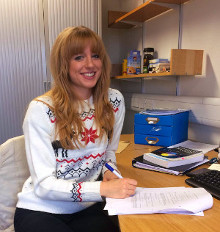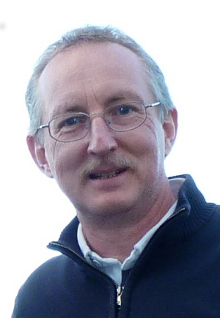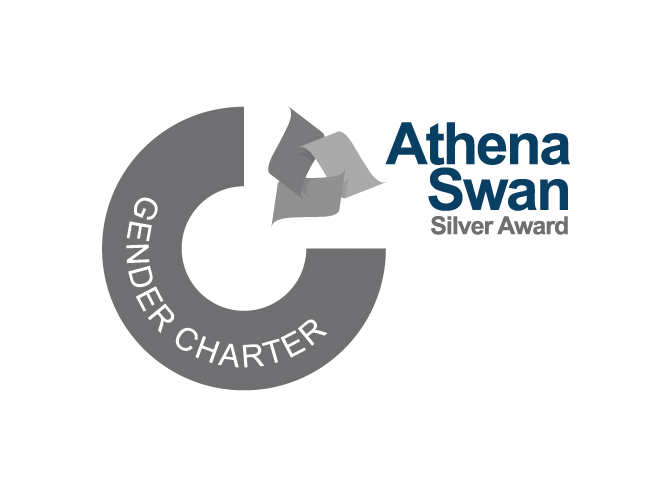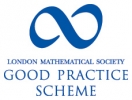PhD student profiles
Michael Ewetola

Thesis title: Droplet evaporation on smooth patterns
PhD study dates: 2017–2021
Employment after completion: Post-doctoral researcher, University College London
What led to you doing mathematics research?
I have always been fascinated about how mathematics accurately describes natural phenomena and technological processes. For example, the Navier stokes equation, which fundamentally describe how a fluid flows through its environment, can be used to understand how the ocean and the atmosphere work. It can also be used to model blood flow through the body, airflow around vehicles and many other natural and industrial processes. This sparked my curiosity to learn more about these equations and the processes they can be used to understand. My PhD research boarders around understanding liquid droplet evaporation process using different mathematical equations.
What do you like/love about doing mathematics research?
Doing mathematics research is interesting and rigorous, but it is the rigor that makes it fun. Nothing can replace the thrill and satisfaction you get when you finally solve a mathematical problem after several attempts. I also like the fact that my research is multidisciplinary in the sense that it is not just about the mathematics alone, but also about the physics of the problem in question as well.
Why did you choose the Open University?
The opportunity to pursue a research topic of my interest coupled with the availability of funds to sponsor my studies made me choose the OU.
What do you think your future holds as a mathematician?
As I have just submitted my PhD thesis. I look forward to further expand my research scope by taking up a post-doctoral research position. This will enable me to become a well-rounded and independent researcher and ultimately help to secure an academic position in the future.
What advice would you give to potential students in mathematics and statistics?
It is important to be make sure you do a research in a topic that interests you. It is this interest that will keep you motivated throughout the life time of your research.
Mairi Walker

Thesis title: Continued fractions and hyperbolic geometry
PhD study dates: 2012–2015
Employment after completion: Mathematics Engagement Officer, University of Edinburgh
My name is Mairi Walker and I study hyperbolic geometry, number theory and complex analysis.
What led to you doing mathematics research, and why The Open University?
Since I was a child I have been fascinated by the idea of research, so after my undergraduate degree at Warwick it seemed natural for me to apply for a PhD position. In my final year project at Warwick I studied Poincaré's theory of Fuchsian groups from both a historical and a modern perspective, and it was through this project that I first heard about the Open University mathematics and statistics department, as it has one of the strongest history of mathematics research groups in the UK. On visiting I discovered that the department has leading researchers in a wide variety of areas, and I became particularly interested in the research projects offered by my current supervisor Dr. Ian Short, and so I chose to apply here.
What's great about research at the Open University?
Doing research can be tough, but it is also hugely rewarding. Here at the OU there is a very good balance of supervision and independence; we get pushed but are also well supported. The focus on both independent and collaborative research, as well as the chances we get to study taught courses, gives us a solid foundation on which to build a career in research. Our department is small, but it has a friendly and dynamic atmosphere, and the PhD students form a close-knit community. We are lucky enough to get a good budget for traveling to workshops and conferences, which gives us opportunities to present our research, learn about what's going on within our field, and meet both established mathematicians and other students. We also have plenty of opportunities for getting involved with media and outreach, as well as with teaching, meaning that research students are also equipped with skills needed to go into jobs outside of research.
David Bevan

Thesis title: On the growth of permutation classes
PhD study dates: 2012–2015
Employment after completion: Lecturer, University of Strathclyde
My name is David Bevan, and I study enumerative combinatorics, particularly permutation classes.
What led to you doing mathematics research?
For twenty or so years before embarking on my PhD, I worked in software development. After reading Proofs from THE BOOK by Aigner and Ziegler in about 2002 (and noticing that one of the proofs wasn't optimal), I continued to investigate the problem (which eventually resulted in a paper) and also read lots of maths papers in my spare time. A few years later when I was becoming increasingly dissatisfied with my job, the discovery that I could be paid for three years to explore what had become my main 'hobby' was sufficient catalyst to seek to embark on a new career.
What's great about doing research?
Exploring the universe of mathematics, or "spending time in maths world", which is what I tell my family I'm doing when I'm lying on the sofa with my eyes shut, working hard! In my psyche, the experience is much like discovering strange new worlds and investigating unfamiliar landscapes (with apologies to Prof. Brian Cox). It is a challenging pursuit and can be very frustrating, with many dead ends and false summits, like trying to find a way to the top of a steep mountain, but I find that the satisfaction of making even a minor breakthrough is considerable.
Why did you choose the Open University?
With the Open University, the following coincided: The availability of a fully funded PhD studentship, the possibility of doing research in an area that interested me, and a location not too far from where I live. The OU also has lots of experience with 'more mature' students like myself. One thing that characterises the department is how friendly and approachable people are; there is not the big divide between lecturers and research students here that is present in some other places.
What do you think your future holds as a mathematician?
I would love to be able to spend the rest of my working life doing mathematical research in a university setting.
What advice would you give to potential research students in mathematics and statistics?
Read lots of mathematics papers. This is now very easy with the arXiv. Learn how to get the gist of an article without needing to take in all the detail. Try to solve (hard) problems, and keep trying. If you don't enjoy that, you won't enjoy research. Find out what sort of mathematics enthuses you and is likely to keep your interest for several years.

